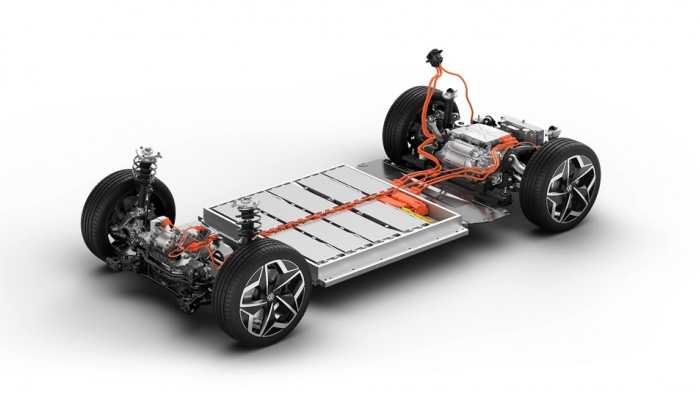Analysis: Why battery recycling is critical towards achieving India's Electric Vehicle goals?
Though battery manufacturing is increasing in India, almost the entire supply chain is dependent on China or other countries.
- Electric Vehicles are slowly picking pace in India
- High battery cost, limited raw material pulling back EVs
- Battery recycling necessary for more EV production
Trending Photos
) Image for representation
Image for representation India is rapidly moving towards the adoption of sustainable mobility solutions where electric vehicles (EVs) will play a pivotal role in this transition. Batteries are the costliest component of an EV, and thus, strengthening and boosting the battery supply chain is a crucial ingredient to reach long-term EV goals. The high-speed two-wheeler segment alone witnessed a 425% rise and registered sales of 1,42,829 units in 2021 compared with a meagre 27,206 units in 2020. Though battery manufacturing is increasing in India, almost the entire supply chain is dependent on China or other countries.
Government policies strengthening battery manufacturers: Over the last few years, the Indian government has been trying to create a favourable ecosystem through numerous policies to promote EV growth. While ensuring a sustained boost to the EV sector through Faster Adoption and Manufacturing of Hybrid and Electric Vehicles schemes (FAME-I and II), the government also realised the transition towards green transportation would benefit from domestic battery cell production.
It allocated the largest share of the PLI scheme outlay to the battery manufacturing industry with a massive allocation of Rs 75,000 Cr for Advance Chemistry Cell (ACC) Batteries and Automobiles & Auto Components. Furthermore, in May 2021, the government approved a PLI scheme- 'National Program on Advance Chemistry Cells (ACC) battery storage' with an outlay of Rs 18,100 Crore for the battery industry.
The government intended to reduce the high import bill by achieving an ACC manufacturing capacity of 50 Giga Watt Hour (GWH). These are very important steps to localizing more of the valuable battery supply chain. Without domestic cell production India’s EV ambitions can be thwarted.
Also read: Ola S1 Pro electric scooter abruptly goes in reverse mode at 90 kmph
Lack of resources and refining capabilities: All the metals that go into manufacturing a Li-ion cell, such as Lithium, Nickel, Cobalt, are concentrated in few parts of the world and many with unstable political structures. Furthermore, China dominates the processing and refining capacities of the supply chain with approximately 80% of total chemical production and above 65% in cathode and anode production.
And since it’s the large cell producer it therefore maintains the dominant position across almost every key piece of the battery supply chain. This existing dominance could lead to long-term challenges, especially for energy security.
Disruption of supply chain routes: The pandemic exposed the vulnerability of domestic battery manufacturers and the sector that relies purely on imports. The imports were affected due to the various global factors, including disruption of supply-chain routes, international relations, and price volatility – all of which created significant resource constraints for Indian EV companies.
The need for recycling
The ACC creates additional incentives for enhancing the domestic supply chain in the spirit of Atmanirbhar Bharat. Upstream requirements for cell production include raw materials, chemical refining and cathode production. The more supply chain capacity developed domestically, the more self-reliant. And these are all high growth industries generating tens of thousands of jobs in key sectors.
But access to raw materials is the starting point. Recycling used batteries, especially without domestic natural reserves, is India's best alternative to boost domestic battery metals production and further enhance opportunities in other sectors of the supply chain. Indian companies can develop a competitive edge in sourcing critical battery materials through recycling and establish an important foothold in the EV ecosystem. It is critical that battery raw material production is achieved through setting up sizeable recycling capacity, but also that it’s done in the most eco-friendly and sustainable ways.
Setting up large-scale capacity to recover valuable metals from used batteries has become a key milestone for all major governments throughout the globe. This new focus is due to supply chain constraints and raw material scarcity, as well as the opportunity to reduce the carbon footprint from mining activities. Governments and industry are increasingly realizing that electrification ambitions cannot be achieved without reliable access to strategic metals. India should also embrace this view and seize the recycling opportunity to mitigate key supply chain risks.
This article is authored by Justin Lemmon, Co-founder of Lohum. All views are personal.
Stay informed on all the latest news, real-time breaking news updates, and follow all the important headlines in india news and world News on Zee News.
Live Tv







)
)
)
)
)
)
)
)
)
)
